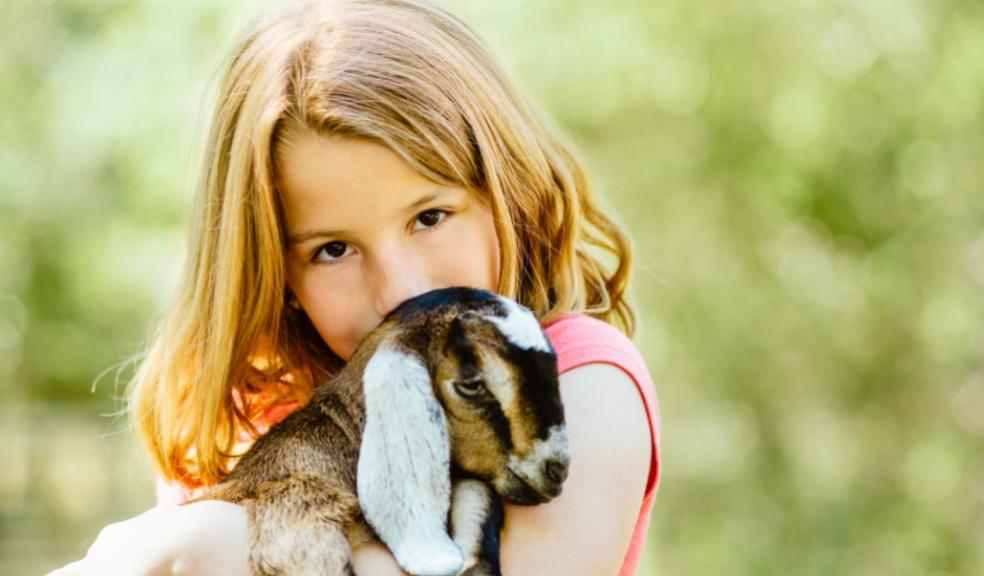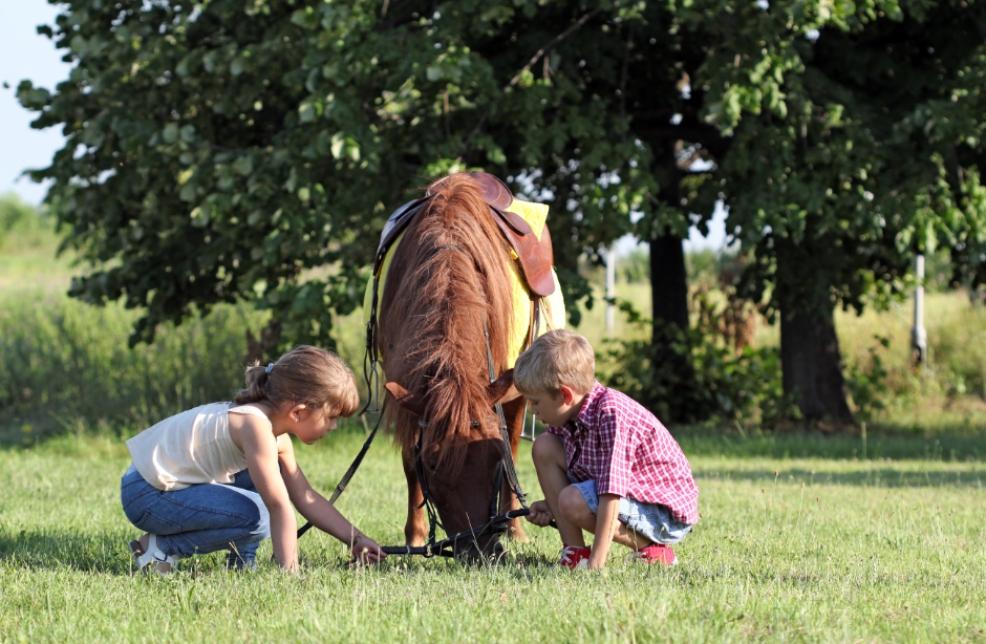
Children think farm animals deserve same treatment as pets
Children differ dramatically from adults in their moral views on animals, new research shows.
University of Exeter researchers asked children aged 9-11 about the moral status and treatment of farm animals (pigs), pets (dogs) and people.
Unlike adults, children say farm animals should be treated the same as people and pets, and think eating animals is less morally acceptable than adults do.
The findings suggest that "speciesism" – a moral hierarchy that gives different value to different animals – is learned during adolescence.
"Humans’ relationship with animals is full of ethical double standards," said Dr Luke McGuire, from the University of Exeter.
"Some animals are beloved household companions, while others are kept in factory farms for economic benefit.
"Judgements seem to largely depend on the species of the animal in question: dogs are our friends, pigs are food."
 Image of children and their pets By Alena Ozerova
Image of children and their pets By Alena Ozerova
The research team – including the University of Oxford – surveyed 479 people, all living in England, from three age groups: 9-11, 18-21 and 29-59.
The two adult groups had relatively similar views – suggesting attitudes to animals typically change between the ages of 11 and 18.
"Something seems to happen in adolescence, where that early love for animals becomes more complicated and we develop more speciesism," said Dr McGuire
"It's important to note that even adults in our study thought eating meat was less morally acceptable than eating animal products like milk.
"So aversion to animals – including farm animals – being harmed does not disappear entirely."
The study also found that, as people age, they are more likely to classify farm animals as "food" rather than "pets" – while children were equally likely to consider pigs to fall into either of these categories.
While adjusting attitudes is a natural part of growing up, Dr McGuire said the "moral intelligence of children" is also valuable.
"If we want people to move towards more plant-based diets for environmental reasons, we have to disrupt the current system somewhere," he said.
"For example, if children ate more plant-based food in schools, that might be more in line with their moral values, and might reduce the 'normalisation' towards adult values that we identify in this study."
The paper, published in the journal Social Psychological and Personality Science, is entitled: "The development of speciesism: Age-related differences in the moral view of animals."
More Parenting Articles for you
New Children's Book to Help Save the Hedgehogs!
Encouraging Children to Ditch the Screen and Spend Time Outdoors
 Image By goce
Image By goce
Cover photo By ferrantraite on Canva














